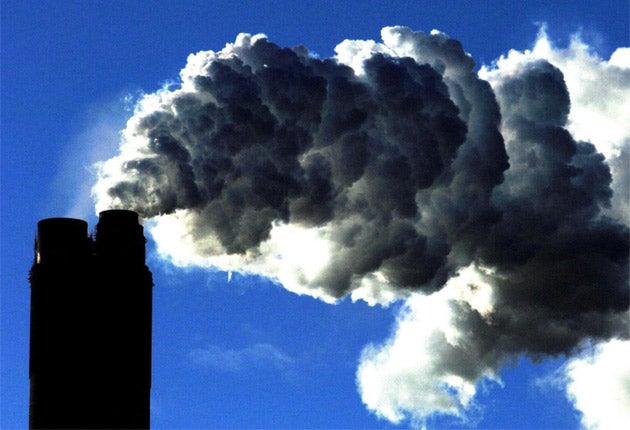UN issues severe climate warning ahead of summit

Your support helps us to tell the story
From reproductive rights to climate change to Big Tech, The Independent is on the ground when the story is developing. Whether it's investigating the financials of Elon Musk's pro-Trump PAC or producing our latest documentary, 'The A Word', which shines a light on the American women fighting for reproductive rights, we know how important it is to parse out the facts from the messaging.
At such a critical moment in US history, we need reporters on the ground. Your donation allows us to keep sending journalists to speak to both sides of the story.
The Independent is trusted by Americans across the entire political spectrum. And unlike many other quality news outlets, we choose not to lock Americans out of our reporting and analysis with paywalls. We believe quality journalism should be available to everyone, paid for by those who can afford it.
Your support makes all the difference.The world is now firmly on the path for dangerous climate change in the coming century, a major new assessment reveals today on the eve of the forthcoming UN climate conference which opens next week in Mexico.
All the pledges of the nations which have agreed to cut or limit their emissions of greenhouse gases, when added together, still leave the world far short of what is needed to halt the coming rise in global average temperatures to 2C, generally regarded as the danger threshold, according to the study from the United Nations Environment Programme (UNEP).
The study sets a gloomy context for the international climate meeting opening on Monday in the Mexican resort of Cancun, which is the successor meeting to the abortive Copenhagen climate conference of last year.
Copenhagen dashed many hopes when the countries of the world failed to agree new legally binding targets to cut their emissions of carbon dioxide and other gases in an attempt to keep global warming under control. However, a last-minute agreement was patched up, known as the Copenhagen Accord, under which nations could voluntarily pledge targets or other actions to get their emissions down.
Some 80 countries, including the biggest CO2 emitters – China and the US – have now made such pledges, ranging from the firm commitment of the EU and its member states to cut their emissions back by 20 per cent by 2020 (and by 30 per cent if other nations take similar action), to China's statement that it will "endeavour" to reduce the energy intensity of its economy – the amount of CO2 it takes to produce one unit of GDP – by 40 to 45 per cent by the same date.
However, the UNEP study calculates that even if these promises are carried out in full – which itself is a big if – they will still leave a massive "gigatonne gap".
Climate scientists consider that to be on a path to 2C and no higher, total world emissions of CO2 and other gases need to peak within the next 10 years and be brought down to about 44 gigatonnes (44 billion tonnes) by 2020. Currently, the world as a whole is emitting about 48 gigatonnes of CO2, and if economies take no action this figure is expected to rise to 56 gigatonnes in 10 years' time.
But even with full and strict implementation of the Copenhagen Accord pledges, this will only bring emissions in 2020 down to 49 gigatonnes – leaving a gap of five billion tonnes. And if the pledges are only loosely implemented the gap could be even greater, with global emissions rising to 53 gigatonnes in 10 years' time.
The task is to formalise and if possible increase the Copenhagen Accord pledges, but it is by no means clear that this is possible at Cancun – it may have to wait until the next climate conference in 2011.
Achim Steiner, the UNEP executive director, reflected this concern: "The challenge is to take the intent reflected in the Copenhagen Accord and bring it into a mutually reassuring framework, and you can go all the way to a legally binding agreement, or some other form."
Join our commenting forum
Join thought-provoking conversations, follow other Independent readers and see their replies
Comments